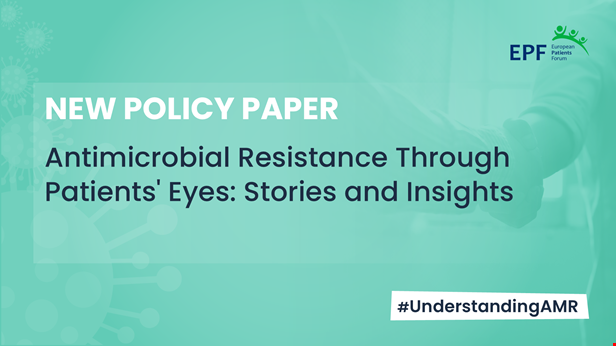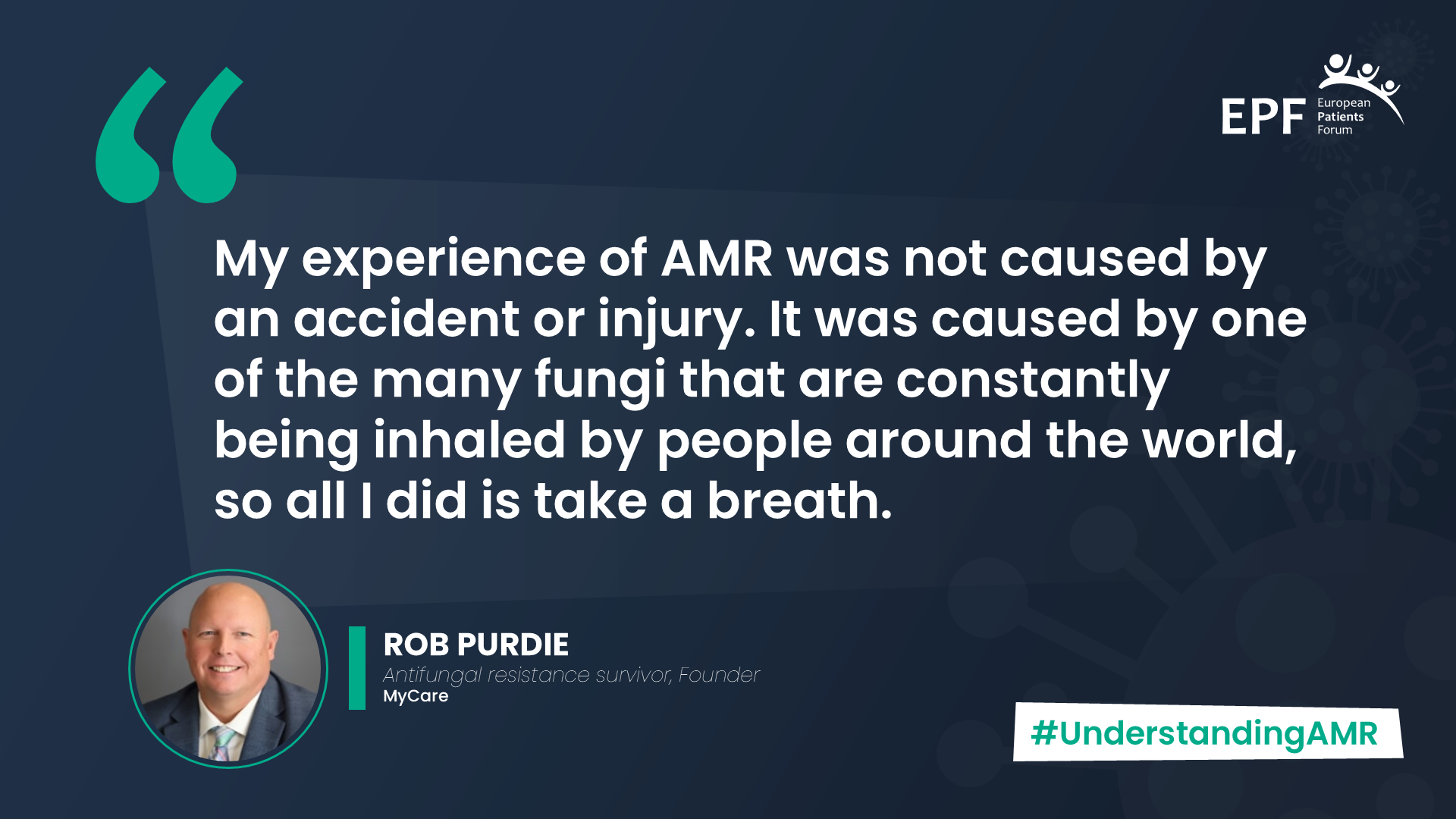EPF releases policy paper with testimonials from patients on AMR

In our latest policy paper, we highlight patients and stakeholders’ experiences with Antimicrobial Resistance (AMR) issues shared during the three webinars we organised in collaboration with The AMR Narrative. The aim of this policy paper is to better understand how AMR affects patients and how the patient community can contribute to effective solutions to this public health issue.

Following the rise in healthcare-associated infections and resistant bacteria, patients risk facing harder to treat infections and less effective treatment options. This results in longer hospital stays, more severe outcomes, increased mortality, and significant impacts on patients’ mental health and trust in the healthcare system.
Drawing on several patient testimonials that put a human face on AMR and show how AMR affects them, this policy paper also presents several solutions for effectively addressing AMR from a patient perspective:
- Recognising and addressing communication challenges
Communication challenges related to AMR include the need to balance what can appear as conflicting messages, for example promoting stewardship and reducing consumption of antimicrobials, while ensuring that people take antibiotics as prescribed and finish their full course. Outcomes of the EU JAMRAI 2 also highlight the importance of basing communication on positive concepts, with terms such as ‘building’ and ‘together’.
- Improving patients’ and the public’s health literacy
Further efforts are needed to inform patients of the measures they can take to prevent and control AMR. Institutions and public health agencies have a key role to play by disseminating evidence-based public health messages and countering misinformation. Also, patient organisations can partner with healthcare professionals’ organisations to raise awareness and implement best practices in healthcare settings, from better infection prevention to promoting prudent use of antimicrobials.
- Amplifying the patient voice on AMR
Stronger patient organisation engagement in AMR is hindered by several factors. AMR is a cross-disease area but affects each disease area in a specific way. This has slowed the process of identifying key messages and common asks for the entire patient community. In addition, while many patient organisations are interested in AMR, they often lack the resources to engage and face conflicting priorities. While education and awareness materials are helpful, the lack of specific capacity-building programmes on AMR prevents patient organisations from taking ownership of the issue.
More than ever, now is the time for patient organisations to raise awareness, engage with policy-makers at national, European and international level, and empower patients to take action.
Read the policy paper here.
For more information about EPF’s positions and recommendations on AMR, please visit our AMR Info Point.
